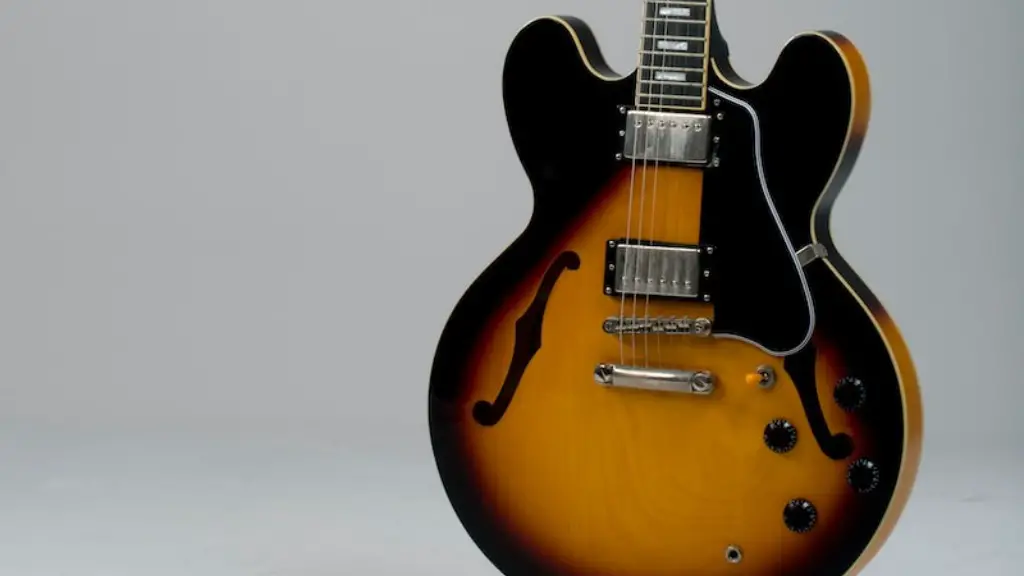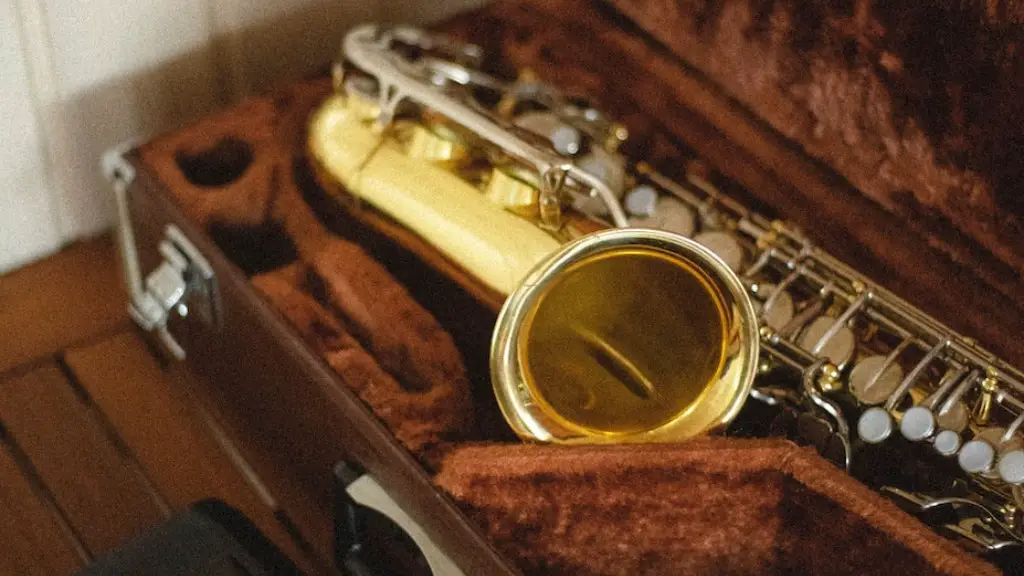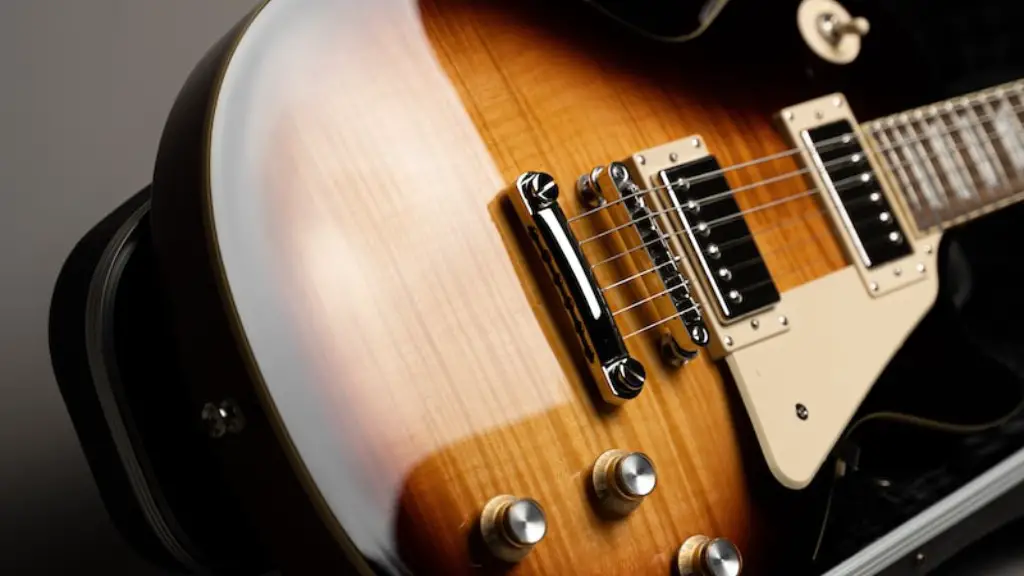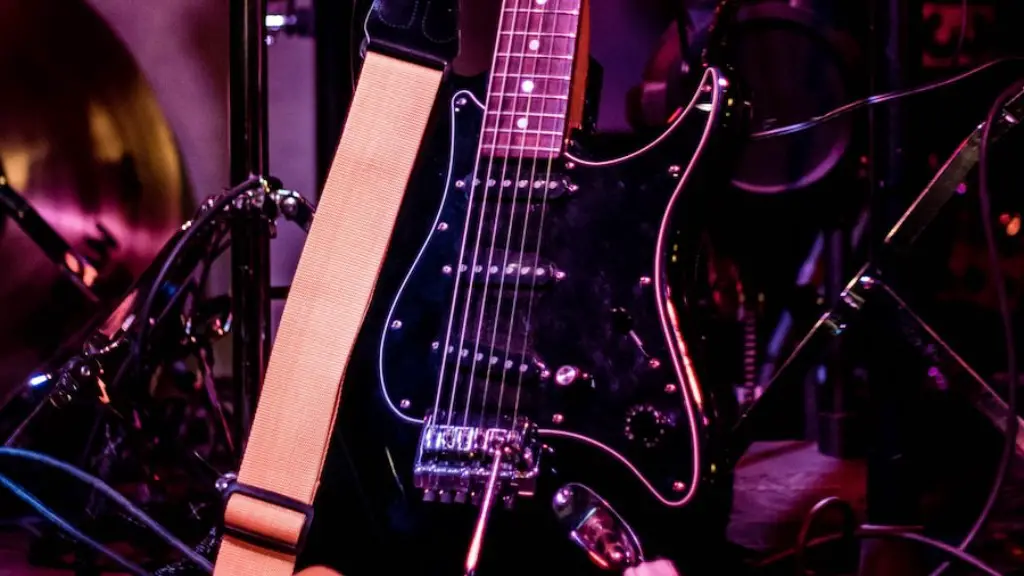The electric guitar is a musical instrument that produces a wide variety of sounds. It has been used in many different genres of music, from rock and roll to classical and jazz. The sound of the electric guitar is characterized by its rich and powerful low-end, its bright and cutting highs, and the ability to create an almost endless variety of sonic textures.
An electric guitar can produce a wide range of sounds depending on the type of pickups and effects used. Single-coil pickups tend to produce bright, twangy tones while humbucker pickups provide a more full-bodied sound. Effects such as distortion, reverb, delay and chorus can further shape the guitar’s sound. The “classic rock” sound is typically produced with a combination of distortion and reverb.
No matter what type of music you are playing, an electric guitar can help you create unique sonic textures that fit your style. With the right combination of pickups and effects, you can explore an almost endless array of sounds that will make your playing stand out from the crowd.
Distinguishing Between Acoustic and Electric Guitar Sounds
Electric guitar is a popular choice among guitarists for its loud and versatile sound. The electric guitar produces a bright, sharp sound that is often associated with rock, pop, jazz, and country music. This sound is created by the electric pick-ups that are built into the guitar and amplify the vibrations of the strings. The electric sound stands out compared to an acoustic guitar, which produces a mellower sound that is typically used in folk, blues or classical music. An acoustic guitar relies on its hollow body to create natural reverberations that give it its signature sound.
The two main differences between an acoustic and electric guitar come down to the pickups used to amplify the strings and the body of the guitars themselves. Electric guitars have single-coil or double-coil pickups that use magnets to create an electrical signal from the vibrations of the strings. Acoustic guitars have a larger body with a hollow chamber which amplifies their natural reverberations. With these two key differences, it’s easy to distinguish between an acoustic and electric guitar simply by listening to it.
Understanding the Range of Electric Guitar Sounds
The electric guitar is a dynamic and versatile instrument. From blues to rock to heavy metal, it can make a wide range of sounds. It has a bright, cutting tone that stands out in the mix and can be used to create anything from melodic leads to crunchy rhythm parts. The sound of an electric guitar is shaped by the pickups, strings, and amplifiers used as well as the techniques employed by the musician. Pickups are used to capture string vibrations and send them to the amplifier. Single coil pickups produce a sharper, brighter sound while humbucking pickups are warmer and more mellow in tone. Strings also play an important role in shaping the sound; heavier gauge strings provide more volume and sustain than lighter strings. Amplifier settings such as gain and EQ will also affect the overall sound of the electric guitar.
Through experimentation with different equipment and techniques, musicians can customize their electric guitar sound however they choose. Regardless of what style they are playing or what equipment they use, electric guitars will always have a signature sound that sets them apart from other instruments.
Exploring the Different Genres of Music Played on Electric Guitar
Electric guitar is a musical instrument that is versatile and can be played in many different genres of music. It has the ability to produce a variety of sounds, from soft and mellow to loud and aggressive. The sound of an electric guitar varies greatly depending on the genre it is used for. Jazz, blues, and rock are some of the most popular genres of music played on electric guitar. Jazz typically has a softer sound, with smooth melodies and complex chords. Blues often features extended solos with expressive bends and slides to create an emotional feel. Rock has a more distorted sound with heavier riffs and power chords.
No matter what genre you’re playing, electric guitar can be used to create amazing sounds. By experimenting with different effects pedals, amps, and pickups, you can create unique tones that can be used to express yourself musically. From jazz to metal, an electric guitar can be heard in almost any type of music today! So grab your axe and start exploring the different genres of music you can play on electric guitar!
The Impact of Pickups on Electric Guitar Sounds
An electric guitar sound is the result of a combination of components, the most important being the pickups. Pickups are electromagnetic devices that sense string vibrations and transmit them to the instrument’s amplifier. They come in many varieties, with different sounds and tones. Single-coil pickups provide a bright and biting tone while humbucker pickups produce a more rounded, mellow sound. Both can be used to create a wide range of sounds. Active pickups also offer greater control over your sound, allowing you to shape it with EQs and other effects.
No matter what type of pickup you choose, it can make a significant difference in the way your guitar sounds. From warm bluesy tones to crunchy rock riffs, different pickups can help you get just the right sound for your style. If you’re looking to customize your electric guitar’s sound even further, consider experimenting with different combinations of pickups for an even more unique tone!
Exploring Effects Pedals and Their Impact on Electric Guitar Sounds
Electric guitar sounds are known for their versatility and range. By using effects pedals, guitarists can further shape and customize their sound. Effects pedals come in a variety of types, such as distortion, overdrive, chorus, delay, reverb and more. Each pedal adds a unique tone to the electric guitar’s sound. Distortion pedals add a gritty edge to your sound, while overdrive pedals create a more saturated tone. Chorus pedals add depth and character to your tone by adding in multiple voices and creating a fuller sound. Delay pedals allow you to create an echo effect by layering notes on top of one another. Reverb effects create an ambient atmosphere by adding space to your guitar’s tone.
These effects can be used together in various combinations to create unique sounds that wouldn’t be possible without them. Additionally, many effects pedals provide additional features such as EQ settings, allowing you to further customize your sound even more. With so many options available it can seem overwhelming at first but experimenting with different combinations of effects can be a fun way to explore new sonic possibilities for your electric guitar.
Amplifying Your Electric Guitar’s Sound
The electric guitar is a versatile instrument that can produce a wide range of sounds. Depending on the type of guitar, pickups, and amplifier, the guitar can sound like anything from a twangy country sound to a loud, distorted rock sound. To get the most out of your electric guitar, it’s important to choose the right amplifier.
An amplifier helps shape your sound by increasing the volume and adding effects like distortion or reverb. It also helps to boost lower frequencies and cut out higher ones, giving you more control over your tone. A good practice amp will also have EQ knobs or sliders that let you fine-tune your sound even further. With an amp, you can take your electric guitar from a basic sound to something more complex and unique.
When choosing an amp for your electric guitar, think about what type of tone you want to achieve. If you’re looking for a clean classic rock sound, go for an amp with plenty of headroom. If you’re going for something more aggressive like metal or punk rock, look for one with heavy distortion capability and plenty of gain. Finally, make sure to consider your budget and how often you’ll be playing live shows before committing to an amp.
To Sum it All Up
Electric guitars produce a distinct sound that can be easily recognized. The sound of an electric guitar is usually characterized by a bright, clean tone, with a punchy and percussive attack. Depending on the type of guitar and the type of pickups used, electric guitars can have many different tonal variations. No matter what style or genre of music you play, an electric guitar will always give you a unique sound. It’s all part of the charm that makes it such an enjoyable instrument to play.



